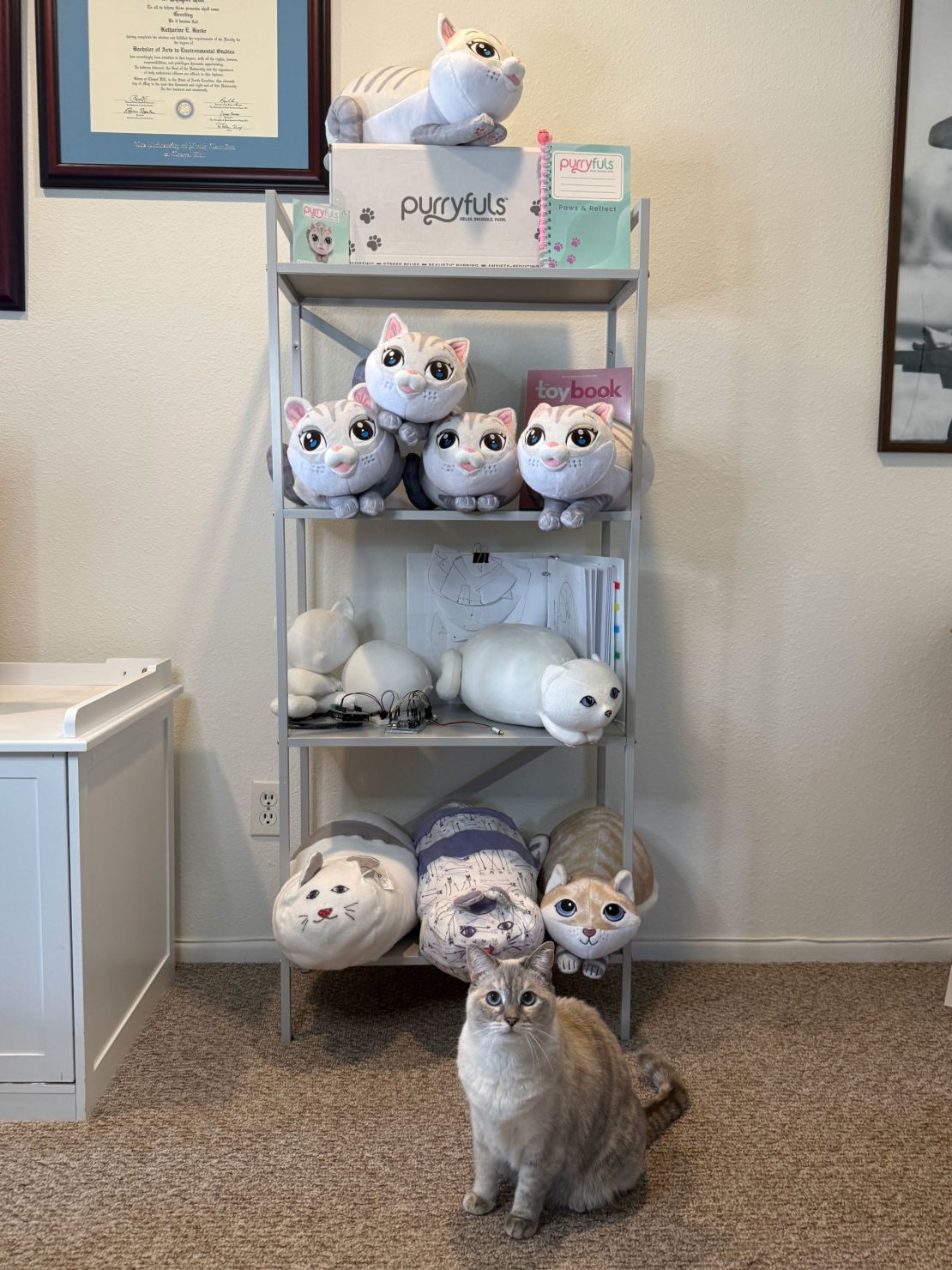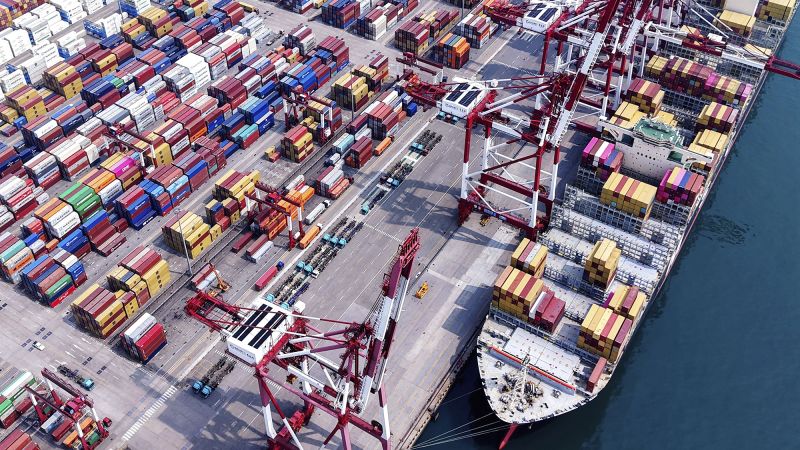CNN
—
President Donald Trump’s decision to impose a steep tax on most goods that come into America has tested the mettle of small business owners whose companies are reliant on global trade.
And the fits and starts that have come along with Trump’s tariff program are not just testing these business owners’ patience, they’re also threatening their very operations.
The latest, and perhaps biggest, curveball came last week when the US and China agreed to sharply lower their respective tariff rates for 90 days. The de-escalation brought the US tariffs on Chinese goods down to 30% from 145%.
Markets cheered the news, and recession forecasts lessened in intensity.
And that surely meant that small business owners who faced steep tariff bills — including Busy Baby founder Beth Fynbo Benike, whose next shipment of baby products was going to come with an additional $230,000 price tag — should be super grateful, right?
Fynbo Benike answered that question with some seething sarcasm and a dose of realism.
“The tariffs came down. 30%. Yay!” Fynbo Benike said on a TikTok video posted last week. “That still sucks, by the way. That sucks for any small business owner … It’s still going to cost me $48,000 more than this shipment would’ve cost me two months ago.”
“It’s still awful,” she said.
@busybabymat
Tariff update – down to 30%! We can ship our products!!!! It still sucks though! #tarifftalk
♬ original sound – Busy Baby
Fynbo Benike has become an archetype for small business owners caught in the crossfire of a tumultuous trade regime.
‘A slap and a kiss’
The erratic nature of President Donald Trump’s trade policies and the severity of newly imposed tariffs have wreaked havoc on small businesses in the US, causing costs to quickly skyrocket, unsettling longstanding supply chains, swiftly stifling growth and expansion plans — and threatening to kill American-bred businesses.
A 30% tariff for Chinese imports “is still a step up, and that’s not the only tariff we’re looking at. We’re looking at tariffs around the globe,” Elizabeth Renter, senior economist at NerdWallet, told CNN in an interview. “That relief was necessary, but let’s not kid ourselves. The impact of this trade war is going to be significant, and I think it’s going to hit smaller businesses potentially the worst.”
To understand the plight of small businesses one needs to only look at the largest corporation of them all.
The chief executive officer of Walmart late last week said that tariffs were “too high” for the world’s largest retailer to absorb, and that it would raise prices in the coming weeks.
“Walmart is the best equipped to handle increased costs; they have probably some of the most complex supply chains, and they’re going to multiple suppliers for all of their products,” Renter said. “If some place like Walmart is signaling that they’re going to be increasing prices, we know that the stress on smaller corporations and smaller businesses is going to be significant.”
Francine Farkas Sears, who 50 years ago was the first American businesswoman invited to China after President Richard Nixon opened trade relations, told CNN that the tariffs are threatening the viability of her business, which makes professional bags for women as well as accessories for the Girl Scouts of America and the Red Cross.

“Well, we might as well just make a lunch date, because I won’t have a business; it’s that serious,” she said.
The steep and shifting tariffs are threatening to unwind decades-forged relationships and make her business unsustainable, she said.
“It’s an industry that we don’t produce today here,” she said, noting that the costs to produce bags, as well as caps and the roller “cookie carts” for scouts would skyrocket if they weren’t made overseas.
“These families are scraping by to join the Girl Scouts for their daughters, and they can buy that cart now for $39,” she said. “If I made it in this country, it would be $200.”
“These are areas where we have to realize that we have to shake hands,” she added, noting the volatility could be too much for her and other businesses to withstand. “Whether you like him or not, it doesn’t matter, [Trump is] one of the smartest negotiators ever: He basically throws everyone off balance, and then he brings them back.”
“It’s a slap and a kiss,” she said.
Pivoting and creating back-up plans
Fynbo Benike, a US Army veteran, has long made efforts to manufacture the tethered baby place mats and other accessories on domestic soil; however, the US infrastructure remains costly, limited, or in some cases nonexistent. So, she and others have had to rely on imported goods and materials to grow their businesses.
And Busy Baby was indeed growing: The company got its products into several hundred Walmart and Target stores, and Fynbo Benike had just paid for her largest-ever order to help backfill inventory for her website and for Amazon.
In recent weeks, Busy Baby was busy pivoting. The company was formulating an international distribution plan, in which the vast majority of the sales would occur outside of the US.
The de-escalation of tariff rates with China means that Fynbo Benike can pull the trigger on shipping the order to the US. However, it will come at a steep cost to her and others — most of the funds to pay for the expected $48,000 import tax are coming from a GoFundMe.
“Now that the tariff has come down, it’s enough to bridge the gap; so, we’re going to ship the product as soon as possible,” Fynbo Benike told CNN in an interview last week. “And then — this is where it’s very, very risky — we’re going to start production for our next line. I’m going to be hopeful that it’s not going to get worse.”
In case it does, she said, she’s modifying production of the baby mats to meet European Union standards.
And despite the détente with China, the outlook for companies like Busy Baby has only become increasingly volatile.
“I would say it’s more and more (uncertain) and different and stronger,” Fynbo Benike said. “Last time, the tariff was going up and up and up; and now, the tariff all of a sudden dropped significantly. And they say it’s for 90 days, but is it for 90 days?”
“Because our administration is known to make sudden and drastic changes out of nowhere, and now that is happening in both directions,” she added.
Last month was meant to serve as a milestone for Katharine Burke’s Purryfuls business, a startup that made self-care purring plushies for stressed-out Millennials and Gen Zers. After two years in development, the first Purryfuls line was meant to go into production.
The month of April, put lightly, “was not fun,” Burke told CNN last week.
“My (company’s) survival was in question all of April,” she said via email. “I had my first-, second-, and third-ever panic attacks. I was trying to come up with backup plans as [the tariffs] dramatically changed my outlook for the year.”

By the first week of May, the Purryfuls products were being manufactured and scheduled to ship from China at the end of the month.
At that time, the tariffs were still 145%, and Burke didn’t know if she’d be in a tight spot, or if she’d be OK.
A week later, the tariffs dropped to 30%, a levy that’s significant for small businesses like hers to absorb. But “it’s survivable,” she said.
That’s not to say it has been smooth.
For one, her customs broker is still poring through the hundreds and thousands of tariff codes to tabulate the exact import duty Purryfuls will have to pay.
And then there are new risks of not only higher shipping costs, but also potential delays for her order.
“Now that the tariffs have eased, all of the shipments are going out at once which could backup ocean freight and drive up pricing,” she wrote. “I’m hearing from my manufacturer that canceled orders are being revived, which is great for them, but the backlog may mean that there is no space for me to place another order as everyone rushes to get ready for Christmas.”

